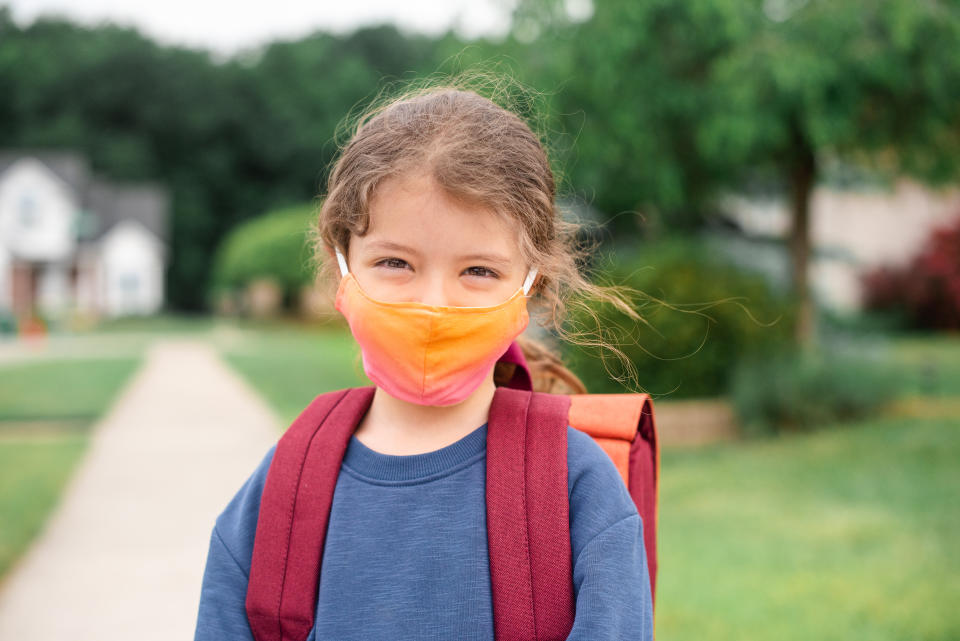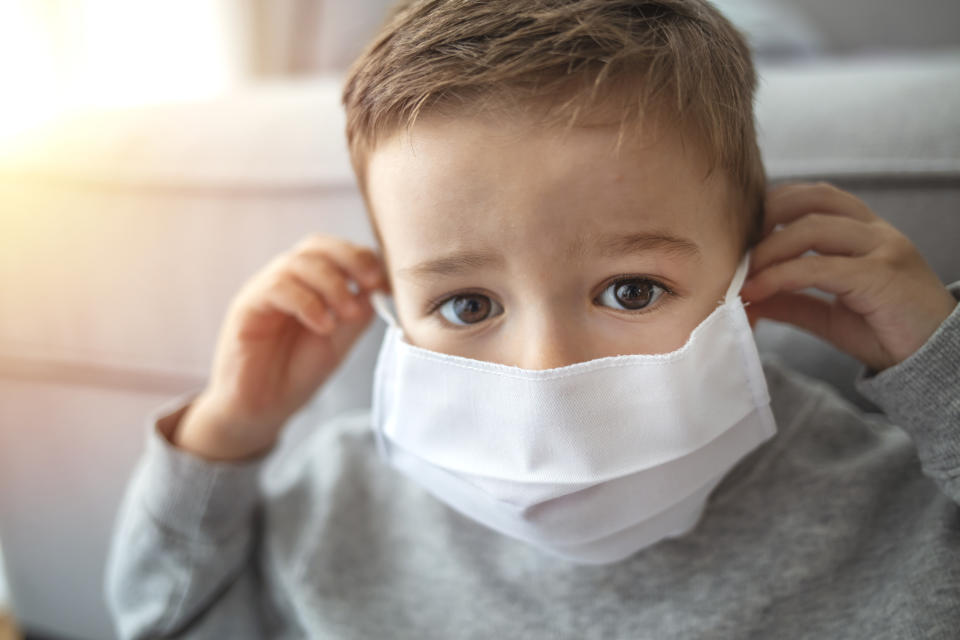'Exceptionally small': Just 1% of severely ill children died in coronavirus study
New research has confirmed children are significantly less at risk of coronavirus complications than adults.
The global death toll has exceeded 826,000, with the vast majority of victims being elderly.
Nevertheless, with UK students set to return to the classroom – many for the first time since 20 March – parents are undoubtedly anxious their children may catch the infection, which is still circulating.
To confirm children’s low risk, scientists from across the UK looked at 651 people under 19 who were admitted to 138 hospitals in England, Wales or Scotland with the coronavirus.
Read more: Hospital sees heart disease patients drop by 53% during lockdown
Six (1%) of the youngsters died, all of whom had a “profound comorbidity”.
“Severe disease is rare and death is vanishingly rare,” said co-lead author Professor Calum Semple from the University of Liverpool.
“They [parents] should be confident that their children are not going to be put at direct harm by going back to school and we do know that they are harm by being kept away from school because of the lack of educational opportunities, and that’s affecting mental health.”
The 1% statistic is “strikingly low” compared to the 27% death rate across all ages over the same period, according to the scientists.
They concluded the risk of a child developing severe disease with the coronavirus is rare and death “exceptionally” so.

“We did not have any deaths in otherwise healthy school-age children,” said Prof Semple.
“The deaths we observed were in children with profound co-morbidities, not a touch of asthma, not cystic fibrosis.
“Under normal circumstances, these children would be said to have existing life-limiting conditions.”
Among all ages, research suggests the coronavirus is mild in four out of five cases.
Children, however, are particularly resilient. One study found they are half as likely to catch the infection in the first place, let alone become seriously ill.
Read more: Google anxiety searches break records amid coronavirus pandemic
In the first six months of the UK’s outbreak, just 0.9% of coronavirus hospital admissions were in people under 19.
As a result of many cases being mild or even asymptomatic, scientists from the ISARIC4C association felt there was insufficient information on how ethnicity and underlying conditions influence a child’s risk.
ISARIC4C is a “UK-wide consortium of doctors and scientists committed to answering urgent questions about COVID-19 quickly, openly, and for the benefit of all”.
COVID-19 is the disease that can be caused by the coronavirus.

‘As a doctor and parent I find this extremely reassuring’
The scientists looked at children and young people who were admitted to hospital with the infection between 17 January and 3 July.
Over a minimum two-week tracking period, 116 (18%) of the participants – who had an average age of four – were admitted to critical care.
This was more common in those under one, between 10 and 14 years old, and of black ethnicity. More than half (57%) of the participants were white, while 12% were south Asian and 10% black.
Read more: Breast-milk ice cubes could deliver coronavirus antibodies
Statistics have repeatedly shown people from black, Asian and minority ethnic (BAME) backgrounds appear to be at greater risk of coronavirus complications.
One explanation could be that people from BAME backgrounds have more underlying health issues, like obesity.
It has also been suggested they may be more likely to depend on public transport, live in “larger family units” or be key workers.
Early in the outbreak, doctors flagged a mysterious inflammatory disease was occurring among a handful of children.
This was likened to Kawasaki disease; a rare condition that usually affects children under five. Kawasaki causes blood vessels to become inflamed, leading to heart complications in around a quarter (25%) of patients.
The ISARIC4C scientists found 11% of their participants met the World Health Organization’s definition for “multi-system inflammatory syndrome”.
These children were 10 on average and more likely to be non-white, the results – published in The BMJ – show.
The youngsters with the inflammatory syndrome had five times the risk of being admitted to critical care, but none died.
Pre-existing health conditions were common among all the participants.
More than one in 10 (11%) had a neurological disorder. Eight per cent had either cancer, a blood condition or an immune-suppressing disease, the result show.
The scientists noted being non-white appears to be a risk factor for coronavirus complications among children, but stressed the odds of severe disease and death were low across all ethnicities.
“As a doctor and parent I find these numbers extremely reassuring,” said study author Dr Olivia Swann from the University of Edinburgh.
The scientists added, however, they do not want to provide “false comfort” to parents whose children may have a condition that puts them at risk.
Nevertheless, “on a population scale, in our study we did not find any deaths in healthy children”, said Professor Semple.



